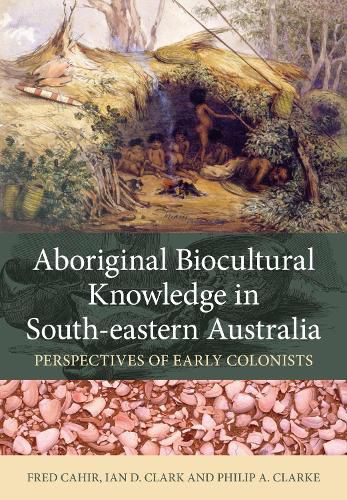Readings Newsletter
Become a Readings Member to make your shopping experience even easier.
Sign in or sign up for free!
You’re not far away from qualifying for FREE standard shipping within Australia
You’ve qualified for FREE standard shipping within Australia
The cart is loading…






Indigenous Australians have long understood sustainable hunting and harvesting, seasonal changes in flora and fauna, predator-prey relationships and imbalances, and seasonal fire management. Yet the extent of their knowledge and expertise has been largely unknown and underappreciated by non-Aboriginal colonists, especially in the south-east of Australia where Aboriginal culture was severely fractured.
Aboriginal Biocultural Knowledge in South-eastern Australia is the first book to examine historical records from early colonists who interacted with south-eastern Australian Aboriginal communities and documented their understanding of the environment, natural resources such as water and plant and animal foods, medicine and other aspects of their material world. This book provides a compelling case for the importance of understanding Indigenous knowledge, to inform discussions around climate change, biodiversity, resource management, health and education. It will be a valuable reference for natural resource management agencies, academics in Indigenous studies and anyone interested in Aboriginal culture and knowledge.
Cultural sensitivity
Readers are warned that there may be words, descriptions and terms used or referenced in this book that are culturally sensitive, and which might not normally be used in certain public or community contexts. While this information may not reflect current understanding, it is provided by the author in a historical context.
$9.00 standard shipping within Australia
FREE standard shipping within Australia for orders over $100.00
Express & International shipping calculated at checkout
Indigenous Australians have long understood sustainable hunting and harvesting, seasonal changes in flora and fauna, predator-prey relationships and imbalances, and seasonal fire management. Yet the extent of their knowledge and expertise has been largely unknown and underappreciated by non-Aboriginal colonists, especially in the south-east of Australia where Aboriginal culture was severely fractured.
Aboriginal Biocultural Knowledge in South-eastern Australia is the first book to examine historical records from early colonists who interacted with south-eastern Australian Aboriginal communities and documented their understanding of the environment, natural resources such as water and plant and animal foods, medicine and other aspects of their material world. This book provides a compelling case for the importance of understanding Indigenous knowledge, to inform discussions around climate change, biodiversity, resource management, health and education. It will be a valuable reference for natural resource management agencies, academics in Indigenous studies and anyone interested in Aboriginal culture and knowledge.
Cultural sensitivity
Readers are warned that there may be words, descriptions and terms used or referenced in this book that are culturally sensitive, and which might not normally be used in certain public or community contexts. While this information may not reflect current understanding, it is provided by the author in a historical context.